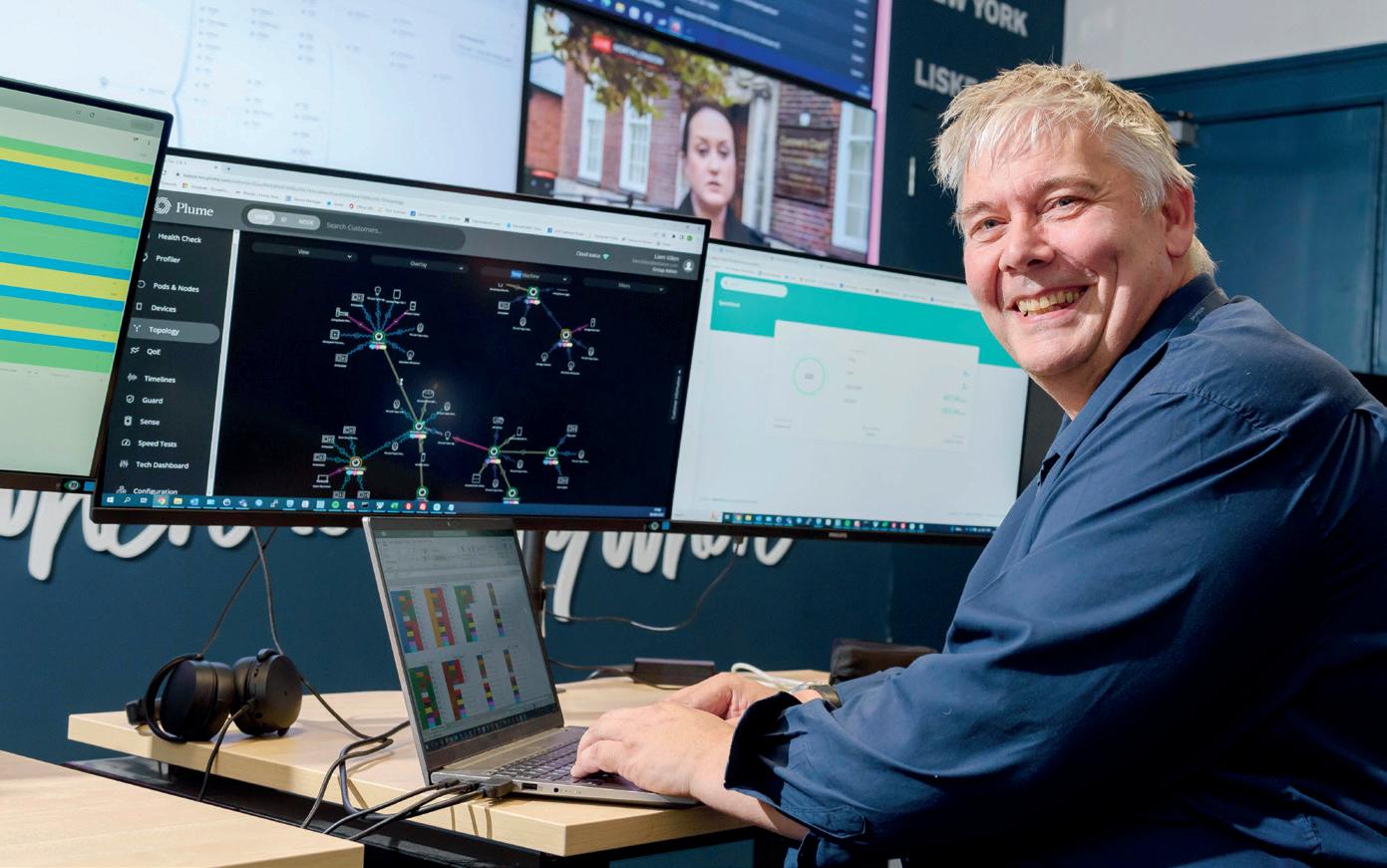
3 minute read
AN EPIC LEGACY
Digital health solutions in the south west.
Imagine a world where you receive a welfare message from your grandma’s TV remote control, take her on a virtual tour of the hospital so she knows what to expect during her appointment, and then enter a ward that’s just been cleaned by a busy robot. It might sound futuristic, but it’s not as far-fetched as you think; all these life-changing eHealth initiatives are currently being developed right here in Cornwall.
Many of the county’s eHealth businesses have one common source of support – the University of Plymouth’s eHealth Productivity and Innovation in Cornwall and the Isles of Scilly (EPIC) project. Since it launched in 2017, EPIC has helped more than 150 organisations throughout the south west with academic support from subject matter experts at the university, professional development events, and grant funding through the Challenge Fund.
Georgie Cox is the founder of Beluga Pods, a social media and wellness platform that enables users to connect based on similar hobbies, medical conditions, or life situations, and provides a safe place for users to give and receive support. She reached out to EPIC with an initial app idea in March 2022, after seeking out sources of support for an undiagnosed condition revealed a gap in the market.
“EPIC have been amazing in my journey because they’ve helped with some of the research and I got the Challenge Fund to build my prototype, which has really brought it to life,” says Georgie.
Beluga Pods was among several of the small and medium sized enterprises (SMEs) that EPIC recently supported to attend the Slush start-up event in Helsinki, Finland, where it made valuable connections with potential investors.
Also among the Slush attendees was Mike Trebilcock, CTO of digital health software solutions provider Tango3. The company is currently in the pilot stage of prototyping a small GPS device that can be attached to defibrillators in order to track their location, minimising the length of time the devices are out of action.
The company made connections with multiple international firms at Slush, who are interested in running a proof of concept in their respective countries once the pilot study is complete. Mike recently saved the life of 14-year-old mountain biker Oscar Dawe with one of the defibrillators he helped campaign to install.
“Tango3 is an amazing business,” says EPIC researcher Samantha Prime.
“They’re truly embedded in the community and really passionate about what they do – very worthy of EPIC’s support.”
EPIC, a collaborative project, part-funded by the European Regional Development Fund and the South West Academic Health Science Network, might be drawing to a close this spring, but the legacy of innovation will continue through the progress of all the businesses it has supported.
Project manager, Jay Amies, says: “We have seen some truly incredible eHealth developments in the south west over the past few years and the organisations that EPIC has supported will no doubt continue to strengthen the digital health ecosystem by providing real world solutions for their local communities. We’re extremely proud of what EPIC – together with all our partners – have accomplished.”
Some of EPIC’s key achievements include:
• Placing Amazon Echo Spots into 150 Cornwall care homes for playing reminiscence music, reminding people of events in the care home, and keeping them connected with family and friends.
• National press coverage for a pilot study with robotic companion Stevie (one of Time’s 100 best inventions of 2019) in a Cornish day centre.
• Collaboration on a trial at the Royal Cornwall Hospitals NHS Foundation Trust (RCHT) with Akara’s decontamination robot, which has the potential to reduce room downtime in critical parts of the hospital by more than 60%.
Throughout his illness, Matthew has stayed remarkably positive, and treated his cancer as a challenge to overcome.
“I think that was the only way I could deal with it,” he says. “Some people go to the North Pole, so get frostbite going up Mount Everest, and that’s their challenge. This was my challenge, and I didn’t have to get frostbite doing it.”
However, it did have a big impact on business, particularly coming hot on the heels of the Covid lockdown. As much of Matthew’s work involves face-to-face contact, he couldn’t risk contracting Covid while undergoing treatment, while chemotherapy itself left him exhausted. So, on the whole, business came to an abrupt halt.
And as he relaunches Distilled Films, there is a sense of déjà vu. “When I first launched my business in 2010, it was not long after a big recession,” he says. “And once again we’re heading for a huge recession, so I feel like I’m right at the beginning again.”
As he continues his recovery and looks to rebuild his business and a new collaborative venture – www.westwardshippingnews.com – he is always mindful the cancer could come back but he says it’s important to be positive.
“You put all this effort in and it’s in the








